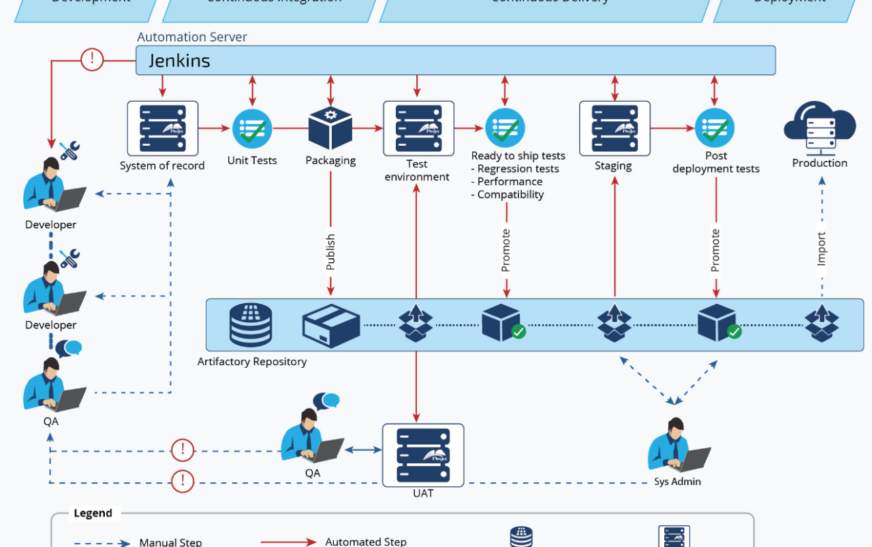The Importance of Server Compliance and Regulations sets the stage for this enthralling narrative, offering readers a glimpse into a story that is rich in detail and brimming with originality from the outset. In today’s digital landscape, the adherence to server compliance and regulations is not just a requirement but a crucial aspect of maintaining data security and privacy.
Let’s delve deeper into why this topic is of paramount importance.
Importance of Server Compliance and Regulations
In today’s digital landscape, server compliance and regulations play a crucial role in ensuring the security and integrity of data. Compliance with these regulations is essential for businesses and organizations to maintain trust with their customers and protect sensitive information.
Servers play a crucial role in maintaining a reliable network infrastructure for businesses. Understanding the role of servers in network infrastructure is essential for ensuring smooth operations and data management. Learn more about the importance of servers in network infrastructure here.
Impact of Non-Compliance
- Financial Penalties: Non-compliance with server regulations can result in hefty fines and legal consequences for businesses.
- Data Breaches: Failure to comply with security protocols can leave servers vulnerable to cyber attacks, leading to data breaches and loss of sensitive information.
- Reputation Damage: In the age of social media and instant communication, news of non-compliance can spread quickly, damaging the reputation and trustworthiness of a business.
Role of Regulations in Data Security
- Data Protection:Regulations such as GDPR and HIPAA set standards for how data should be handled and stored, ensuring the privacy and security of sensitive information.
- Risk Management:Compliance regulations help businesses identify and mitigate potential risks to their servers, reducing the likelihood of data breaches and cyber attacks.
- Consumer Trust:By adhering to server compliance regulations, businesses can demonstrate their commitment to protecting customer data, building trust and loyalty among their client base.
Common Server Compliance Standards
When it comes to server compliance, there are several major standards that organizations need to adhere to in order to ensure the security and privacy of their data. Some of the most well-known compliance standards include HIPAA, GDPR, and PCI DSS.
Each of these standards has its own set of requirements and guidelines that organizations must follow to stay compliant.
Embracing digital tools is the key to crafting a strong brand identity that resonates with your audience. By utilizing tools like analytics software and design platforms, you can create a cohesive brand image that sets you apart from the competition.
Learn more about how digital tools can help you create a cohesive brand identity here.
HIPAA (Health Insurance Portability and Accountability Act)
HIPAA is a compliance standard that is specifically aimed at protecting the privacy and security of healthcare information. Organizations that handle sensitive health data must comply with HIPAA regulations to ensure that this information is kept safe from unauthorized access or disclosure.
Some key requirements of HIPAA include implementing safeguards to protect patient information, conducting regular risk assessments, and providing training to staff on data security best practices.
GDPR (General Data Protection Regulation)
GDPR is a regulation that focuses on the protection of personal data for individuals within the European Union. Organizations that collect or process personal data of EU citizens must comply with GDPR requirements, which include obtaining consent for data processing, implementing measures to protect data, and appointing a Data Protection Officer.
GDPR is known for its strict penalties for non-compliance, which can result in hefty fines.
PCI DSS (Payment Card Industry Data Security Standard)
PCI DSS is a compliance standard that applies to organizations that handle credit card information. It aims to ensure that payment card data is stored and transmitted securely to prevent fraud and data breaches. Some key requirements of PCI DSS include maintaining a secure network, protecting cardholder data, regularly monitoring and testing security systems, and maintaining a vulnerability management program.
Implementing Server Compliance: The Importance Of Server Compliance And Regulations

Ensuring that servers comply with relevant regulations is crucial for maintaining the security and integrity of data. Implementing server compliance involves following specific steps and best practices to meet industry standards.
Regular Audits and Assessments
Regular audits and assessments are essential for ensuring that servers remain in compliance with regulations. These processes help identify any gaps or vulnerabilities in the server infrastructure, allowing organizations to take corrective actions promptly.
Social media listening is essential for understanding your audience and staying ahead of trends. With the top digital tools available, such as social media monitoring and sentiment analysis tools, you can gather valuable insights to inform your marketing strategy. Discover the top digital tools for social media listening here.
- Conduct regular internal audits to review server configurations and security measures.
- Hire third-party auditors to perform independent assessments and provide unbiased evaluations.
- Document audit findings and implement necessary changes to address non-compliance issues.
Best Practices for Maintaining Compliance, The Importance of Server Compliance and Regulations
Adhering to best practices is key to maintaining compliance in server infrastructure. By following these guidelines, organizations can minimize risks and ensure that their servers meet regulatory requirements.
- Regularly update server software and security patches to protect against vulnerabilities.
- Implement access controls and encryption mechanisms to safeguard sensitive data.
- Establish clear policies and procedures for handling data and managing server configurations.
- Provide ongoing training for IT staff to stay informed about compliance requirements and best practices.
Consequences of Non-Compliance
Failure to comply with server regulations can have serious consequences for organizations, ranging from financial penalties to reputational damage and legal actions. Non-compliance can also leave systems vulnerable to data breaches and cyber attacks, putting sensitive information at risk.
Potential Penalties for Non-Compliance
- Financial Penalties: Organizations that fail to comply with server regulations may face hefty fines, which can significantly impact their bottom line.
- Legal Actions: Non-compliance can lead to lawsuits, legal disputes, and regulatory investigations, resulting in costly legal fees and damages.
Data Breaches and Security Vulnerabilities
- Data Breaches: Non-compliance with server regulations can increase the likelihood of data breaches, exposing sensitive information to unauthorized parties.
- Security Vulnerabilities: Failure to adhere to server compliance standards can create security gaps in systems, making them more susceptible to cyber threats and attacks.
Examples of Organizations Facing Legal Actions
Equifax, a credit reporting agency, faced a $700 million settlement in 2019 for failing to secure sensitive consumer data, resulting in a massive data breach affecting millions of individuals.
Facebook was fined $5 billion by the Federal Trade Commission in 2019 for violating user privacy regulations, highlighting the consequences of non-compliance with data protection laws.
Ultimate Conclusion
As we conclude this discussion on the significance of server compliance and regulations, it becomes evident that adherence to these standards is not just a legal obligation but a vital component in safeguarding sensitive data and ensuring organizational integrity. By understanding and implementing these regulations effectively, businesses can navigate the digital realm with confidence and trust.








